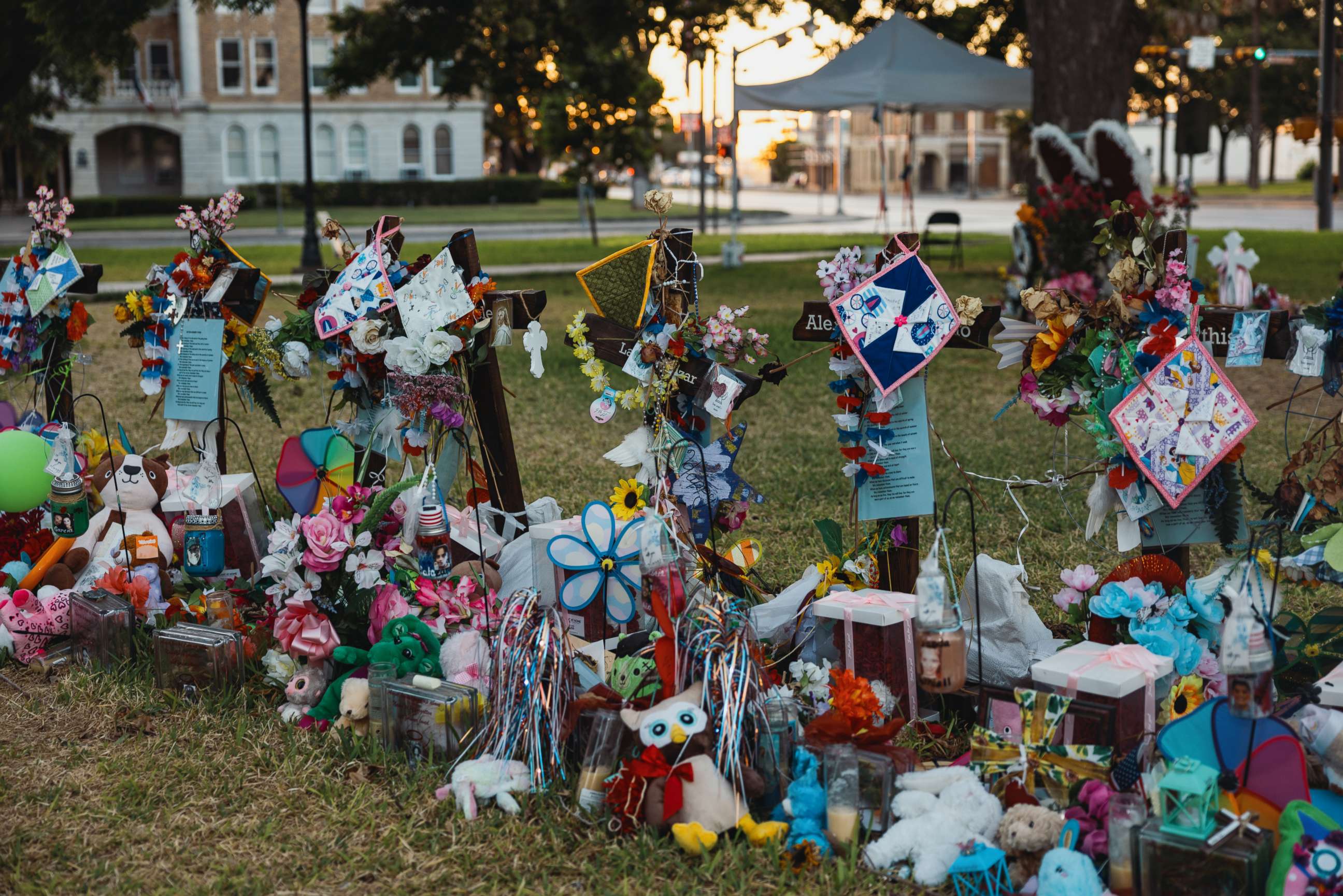'He would still come back': Online users say they reported Uvalde gunman's behavior, but to little effect
Users say he was banned from one app but was able to re-access his same account.
In the weeks leading up to last month's elementary school shooting in Uvalde, Texas, the 18-year-old gunman made a number of disturbing comments to users on various social media platforms, leading the head of Texas' top law enforcement agency to say last week that those comments "should have been reported."
But at least some of the online users who communicated with the gunman previously told ABC News they did try to report him -- yet their efforts largely went nowhere.
"Regardless of how many times he was reported ... he would still come back," a user who lives in Greece and asked to remain anonymous, told ABC News regarding her multiple attempts to report the gunman, identified by authorities as Salvador Ramos.
Among Ramos' online comments were possible signs that troubling behavior was ahead: He referenced school shootings, alluded to a possible upcoming incident, and shared pictures and videos of guns, users who communicated with him told ABC News.
One user told ABC News that leaders of panels and live chats on the social media app Yubo would ban Ramos after he would come into the live groups, where the user said Ramos would "threaten other people that he would shoot up their schools."
Another user told ABC News that he would kick Ramos out of live panels he was hosting after Ramos would enter and make concerning comments. The reporting function on the platform, he added, "barely works."
Many social media apps have a function to report other users based on various conduct issues, such as inappropriate conduct or harassing behavior.

Two of those users claim that Ramos was eventually temporarily banned from the app, but was able to regain access to his same account.
A spokesperson for Yubo, when asked by ABC News earlier this month to confirm if Ramos' account had been flagged, said that "at this stage, we are not legally able to release any specific user information outside of direct requests from law enforcement."
The revelations about Ramos' online behavior leading up to the shooting have sparked questions about the efforts of social media companies to monitor their platforms for warning signs in an era of rising online hate. Testifying last week before a Texas state Senate panel, Department of Public Safety Director Steven McCraw, whose agency is leading one of the probes into the massacre, said that he was "disappointed in the social media industry for not being more proactive."
"Make sure it's not Big Brother, but that you offer law enforcement the opportunity at least to identify suspicious activity and act upon it," McCraw said.
John Cohen, a former senior Homeland Security official who is now an ABC News contributor, said the "key issue" is for law enforcement to broaden its threat assessment efforts when it comes to potentially violent individuals -- a process he said is already underway in agencies around the country.
"It we're going to stop these shootings, law enforcement has to look differently at people who require attention," Cohen said. "[The law enforcement community] has been slow to build capacity to be able to incorporate online expressions of intent into our investigation process."
In the wake of the Uvalde massacre, Yubo has since announced new updated "safety features" on its platform, including enhanced reporting capabilities.
"The devastating events of 24 May in Uvalde, Texas, brought to light systemic issues in society that need to be addressed," Yubo CEO Sacha Lazimi said in a statement about the new measures.
They include a new "combined-signals risk detection algorithm" that will help provide context around potential risks on its platform by assessing "a combination of signals including keywords, emojis, and images."
Ramos also allegedly communicated with users on Facebook and on Instagram, though ABC News has not determined that there were any efforts to report him on those platforms.
A young teen who said she exchanged private messages with Ramos on the morning of the shooting told ABC News that she has been asking herself, "What if I could change the outcome?"
The teen, who asked to be referred to as "Cece," allegedly received messages from Ramos saying, "I shot my grandmother in the head" and "ima go shoot up a elementary school rn."
"Ever since May 24, I have been guilt-tripping myself,"" said the teen. "What if I could change his mind to not do this?"
ABC News' Will Steakin contributed to this report.



